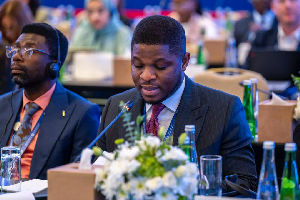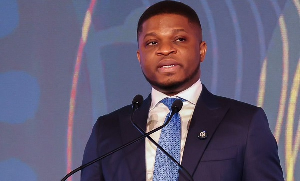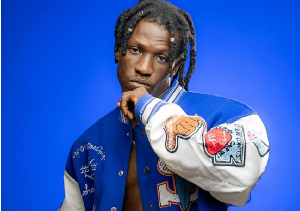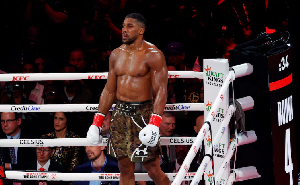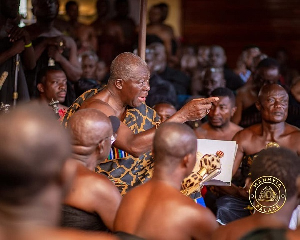(Originally published in New York Beacon, 4/28/04)
Recently, I had a telephone conversation with my daughter?s maternal grandmother in which I expressed my opinion regarding Nigeria?s war-time head-of-state, Gen. Yakubu Gowon, as perhaps the most constructive post-colonial premier to have emerged out of Africa?s most populous country. Such assertion bordered on treading on live electric wires; for Mrs. Ononaji is an Ibo, from the Imo heartland of the former Republic of Biafra. And during the infamous Nigerian Civil War (1967-1970), in which an estimated three to five million people lost their lives, the Ibo fought on the opposite side of the Gowon government. Nonetheless, I made the preceding remark based on two fundamental principles, namely, the fact that Gen. Gowon was hell-bent on ensuring that Nigeria did not disintegrate barely seven years into its post-colonial journey. For then, it would have vindicated the British, and general Western imperialist, view that Africans were incapable or not ready to govern themselves in the modern era. More importantly, however, was the fact that in successfully holding the disparate multiethnic nationalities together, Mr. Gowon had proven that Ghanaian president Kwame Nkrumah?s vision of African unification was not simply a pipe-dream. Today, Nigeria is almost twice its size in population, and the experimental and patently adventuristic project that was the Republic of Biafra is no more ? and that, in many respects, is the good news. It is also rather ironic that Col. Odwumegwu Ojukwu, the Oxbridge-schooled pseudo-revolutionary who misguidedly championed the partisan and ethnocentric cause of Biafra, recently participated in a presidential election seeking to assume leadership of the entire country, not just the leadership of the estimated 30-40 million Nigerians of Ibo ethnic extraction. And while his ultimate defeat was a foregone conclusion, Ojukwu, nevertheless, brazenly inveighed against what the former exile termed as massive electoral fraud after being roundly and soundly trounced by the incumbent, Gen. Olusegun Obasanjo. And so, on the political front, Mr. Yakubu Gowon has proven to be the most foresighted of Nigeria?s military rulers. The country, it bears to remind ourselves, has yet to reach the salutary level of a cohesive or organic sense of a common destiny. Indeed, it is routinely observed that tribalism in Nigeria is far more insidious than mainstream America?s institutionalized racism. And this is partly evinced by the fact that Nigeria has progressed or regressed, depending on who is doing the reckoning, from a three-region nation to a country of 36 states, and there appears to be the eerie possibility of witnessing the creation of even more states. And while the aim of this rather daunting state of affairs is political decentralization, for Nigeria is a federation like the United States, albeit a very fragile federation, the phenomenal statification of the country has proven to be more regressive and counterproductive than its staunchest advocates might have conceived. For with the near-pathological creation of more states has come massive infusion of scarce monetary resources into the development of otiose bureaucracies instead of grassroots development.
And with the creation of more gubernatorial bureaucracies has also implied the logical inflammation of political violence. Recently, a number of Nigerian community publications, here in the United States, including the just launched African Post, have decried the high spate of contract killings, another term for assassinations, for in Nigeria political power is a matter of life and death in a manner that is almost unprecedented on the entire African continent. Not long ago, for instance, the Justice Minister (Bola Ige?) was executed in what was alleged to be an assassination contract underwritten by a well-known senator (Omisore?) of the ruling government. As of this writing, the case is still either under investigation or in the courts, even though the alleged master-mind managed to convincingly clinch a re-election victory and is happily, it seems, practicing his neo-Roman trade. The legitimately elected governor of one of the country?s 36 states (Imo?) was also kidnapped, reportedly by the top-brass of law-enforcement agencies, and forced to sign a pre-written gubernatorial resignation letter, after which he was released. And so, in many respects, the post-colonial political culture of Nigeria pretty much reflects the phantasmagorical world of Amos Tutuola?s magical realism. It is quite exotically fascinating to the outsider, albeit rather unsavory and abominable to the insider or indigene.
The other landmark success of Gen. Yakubu Gowon is on the personal level. To-date, the former Nigerian head-of-state is the only military ruler to have carved a meaningful professional identity for himself after he was deposed in a 1976 coup detat spearheaded by the late Gen. Murtala Muhammad and his staunch or trusted lieutenant and incumbent president Gen. Olusegun Obasanjo. After his overthrow, Gen. Gowon fled to Britain and enrolled into a graduate political science and emerged several years later with a doctorate in the aforementioned discipline. Today, he leads the quiet, respectable life of a university professor in the Jos or plateau region of Nigeria. Not many deposed military rulers in Africa have been able to take up quiet residence in their native countries and lead a meaningful and respectable academic or professional existence. And, to be certain, it is this woeful inability to retool or civilianize themselves, long after they have exhausted their political capital or welcome, that ensures that many a continental African military ruler would become a perennial dictator.
Such, indeed, is the tragic case of Ghana?s Flt.-Lt. Jeremiah John Rawlings. In fact, recently, when this writer discovered the full first-name of Mr. Rawlings, he could barely prevent himself from literally exploding with laughter. For the celebrated ancient Hebrew prophet led a diametrically divergent existence to Mr. Rawlings? swashbuckling and thuggocratic existence. As we write, the man who dominated the Ghanaian political landscape for two decades, half of them as the legitimately elected president, is reportedly roaming the dusty streets of Accra, the nation?s capital, with a platoon of body guards manhandling or roughing up anybody the gang deems to be a nuisance or source of annoyance to the ex-president and pseudo-socialist capo.
On Wednesday, March 31, 2004, the Accra Daily Guide reported that Mr. Rawlings and his posse of malcontents had assaulted a cell-phone repair man. The entire details of the incident, which occurred in the Ashaiman district of central Accra, are not very clear. It appears, however, that the assault victim, Mr. Adamu Seini Mansu, had approached the former president?s entourage to express either his admiration or appreciation for whatever it was that Mr. Rawlings had done for him in the past, for Mr. Mansu is also described as an ardent sympathizer of the Rawlings-led National Democratic Congress (NDC). The victim promptly lodged a complaint with the precinct?s police. However, it appears that either out of fear or deference, the latter precinct referred the case to the Police Headquarters, whose station chief politely invited the former president to come in and present his version of the aforementioned event. At the time of this writing (April 8, 2004 ? which also happens to be the 41st birthday anniversary of the author), Mr. Rawlings had made no effort to respond to the formal query of police investigators. The irony is that for most of the three-and-half years that he has been a private Ghanaian citizen, Mr. Rawlings has also become a veritable and brazen scofflaw. Not that he was ever a law-abiding citizen; for while he sat and stomped the backs and necks of his countrymen and women as Chairman Rawlings, the populist pseudo-revolutionary, Mr. Rawlings had no need to scoff at the law; he was the law. And since he was pressured to leave government and power, the Bukom-Square graduate of rabble-rousing has incessantly thumbed his nose at the Kufuor government by accusing the latter of gross administrative incompetence and outright lawlessness. That he does not recognize himself as an inextricable part of the problem is, indeed, what constitutes the tragicomic existence of Mr. Rawlings.
Quite interestingly, this is the kind of anti-social behavior which would have earned the culprit a stiff judicial penalty under the NDC political tenure; and prior to that, during the era of the so-called Provisional National Defense Council (PNDC), the culprit would quite likely have faced execution by firing squad. And here, it bears reminding our readers that this was also the era when ordinary Ghanaian citizens could simply and literally vanish into thin air, for simply daring to express any dissent against the government. This was the era when political and ideological opponents were summarily branded ?dissidents? to be meted instant capital punishment by edict. It is also quite quizzically amusing that in February when Mr. Rawlings appeared before the country?s National Reconciliation Commission to answer for the execution of the three Supreme Court judges, in 1983, the former commander-in-chief of the Ghana Armed Forces could only respond that his purported tape-recorded evidence of vindication was in the possession of a deceased Regimental Sergeant-Major (RSM), a former aide-de-camp to the Chief-Terrorist of the P(NDC).
Instead of facing the legal consequences of his anti-social behavior, the Daily Guide reported that Mr. Rawlings had privately invited his assault victim, Mr. Adamu Seini Mansu, into the privacy of his office for an apology and some unspecified form of compensation. Interestingly, when he appeared before the National Reconciliation Commission, the ex-president described himself as ?Currently unemployed.? Maybe he needs to be advised to borrow a paragraph or two from the enviable, meaningful and constructive life of Nigeria?s Gen.-Dr. Yakubu Gowon.

Views expressed by the author(s) do not necessarily reflect those of GhanaHomePage.


